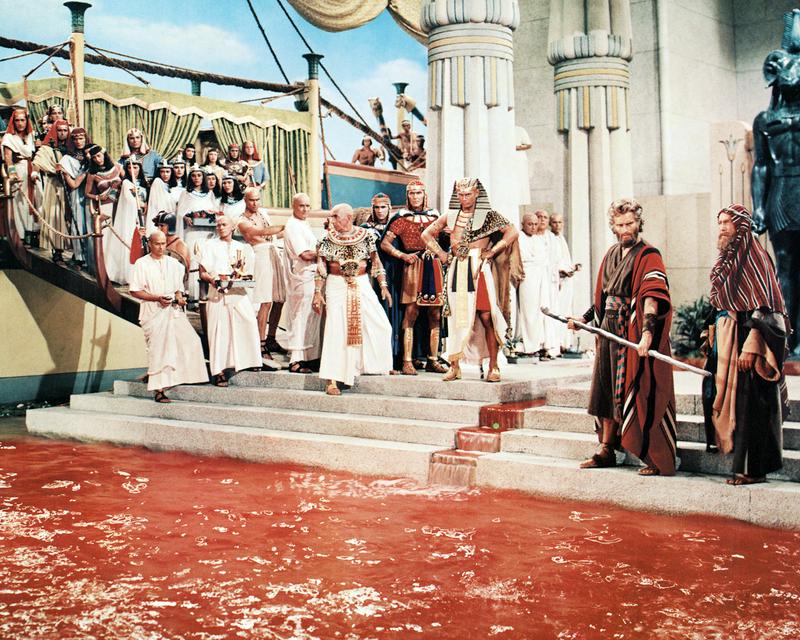Before They Were Cliché: Five Common Expressions and Their Origins
By | January 25, 2019

There’s a vast number of expressions used in conversations these days that have been so commonly used as to become cliché. These expressions roll off the tongue like water off a duck’s back and more often than not the person saying them has no idea when or how they originated or, in some cases, what they really mean.
Blood Is Thicker Than Water
The phrase, “blood is thicker than water,” is commonly used today to express the sentiment that family members come before anyone else. However, its origins are disputed and some theories suggest that the original phrase was “the blood of the covenant is thicker than the water of the womb.” Proponents of this theory posit that the actual meaning of the phrase is the exact opposite of how we use it today, referring instead to the bond between soldiers on the battlefield or between two individuals who have entered into a blood covenant. This theory is often linked to the blood covenants of the Bible; however, the phrase itself does not appear in the Bible.
Another theory credits a 12th-century German narrative poem, Reinhart Fuchs, with the coining of the phrase we use today. However, that text is not an exact match either, with the English translation being “kin-blood is not spoiled by water.” While this phrase is similar, it certainly suggests a different meaning than the proverb as we know it. The earliest documentation of the phrase as it is used today appears as “blude’s thicker than water” in Allan Ramsay’s Collected Scot Proverbs (1737).

CAT GOT YOUR TONGUE
Another phrase with disputed origins is the question, “cat got your tongue?” It is commonly used to taunt someone who fails to produce a comeback during a verbal dispute, though it may also be used to question someone who is just being suspiciously silent. One theory attributes the phrase to ancient Egyptian times, claiming that the tongues of liars and blasphemers would be cut out and fed to cats. A similarly gruesome theory suggests that it refers to the use of the whip called the cat o’ nine tails. Yet another theory maintains that the phrase originated in the Middle Ages from the belief that witches concealed their identities by having their black cats steal the tongue of anyone unlucky enough to encounter them. However, none of these theories can be substantiated. The phrase can only be traced back as far as 1881 when the line, “Has the cat got your tongue, as the children say?”, appeared in Ballou’s Monthly Magazine, Volume 53.

CURIOSITY KILLED THE CAT
Speaking of cats, another popular expression is the proverb, “curiosity killed the cat.” This is usually a not-so-subtle way of telling someone to mind their own business. This line most likely stemmed from a similar line, “care killed the cat,” which first appeared in 1598 in Ben Jonson’s Every Man in His Humour. It appeared yet again in Williams Shakespeare’s Much Ado About Nothing: “What, courage man! what though care killed a cat, thou hast mettle enough in thee to kill care.” In both instances, the word “care” refers to worry or sorrow rather than affection or nurturing. The replacement of “care’ with “curiosity” can most likely be attributed to the negative association with the overly inquisitive. Saint Augustine’s Confessions (397 A.D.) says that God “fashioned hell for the inquisitive.” John Clarke’s Paroemiologia (1639) suggests “He that pryeth into every cloud may be struck with a thunderbolt.” Combine this negativity with the natural curiosity for which cats are known and it seems a natural progression of the phrase. With that being said, the first recorded use of the modern version does not appear until 1898 in The Galveston Daily News with the line “curiosity killed a Thomas cat.”

HAIR OF THE DOG
Yet another beastly expression is “hair of the dog,” which is a shortened version of “hair of the dog that bit me,” the pronoun of which is interchangeable. It is most often used today as a suggestion that the ideal cure for a hangover is to drink more alcohol. Unlike the other phrases which have murky origins, this one has a literal derivation. In medieval times, it was thought that a person infected with rabies could be cured using hair from the rabid dog that bit them. Ironically, the record of this practice does not occur in print until 1760 in Robert James’s A Treatise on Canine Madness, while the first use of the expression in regard to a cure for a hangover occurred two hundred years earlier in John Heywood’s text, A dialogue conteinying the nomber in effect of all the prouerbes in the Englishe tongue (1546). While there is no merit to the idea that the dog’s hair can cure rabies, a small amount of alcohol can ease the effects of alcohol withdrawal thus providing temporary relief from hangover symptoms.

MAD AS A HATTER
Though not as common as it once was, the phrase “mad as a hatter” simply refers to someone who has been deemed crazy. While most people assume the phrase originated with the Mad Hatter from Lewis Carroll’s Alice in Wonderland, it actually goes back further. The phrase is most likely derived from the 19th century when mercury was used in the production of hats. The resulting mercury poisoning, known today as Mad Hatter’s disease, caused the milliners to appear insane. However, there is no documented proof that mercury poison led to the phrase “mad as a hatter.” The phrase first appears in Blackwood’s Edinburgh Magazine in 1829. It appears again in 1835 in Thomas Haliburton’s The Clockmaker; or the Sayings and Doings of Samuel Slick of Slickville (1835). Another, albeit unlikely, source of the phrase was a description of miners in New Zealand who were called hatters due to their tendency to go mad from solitude.

